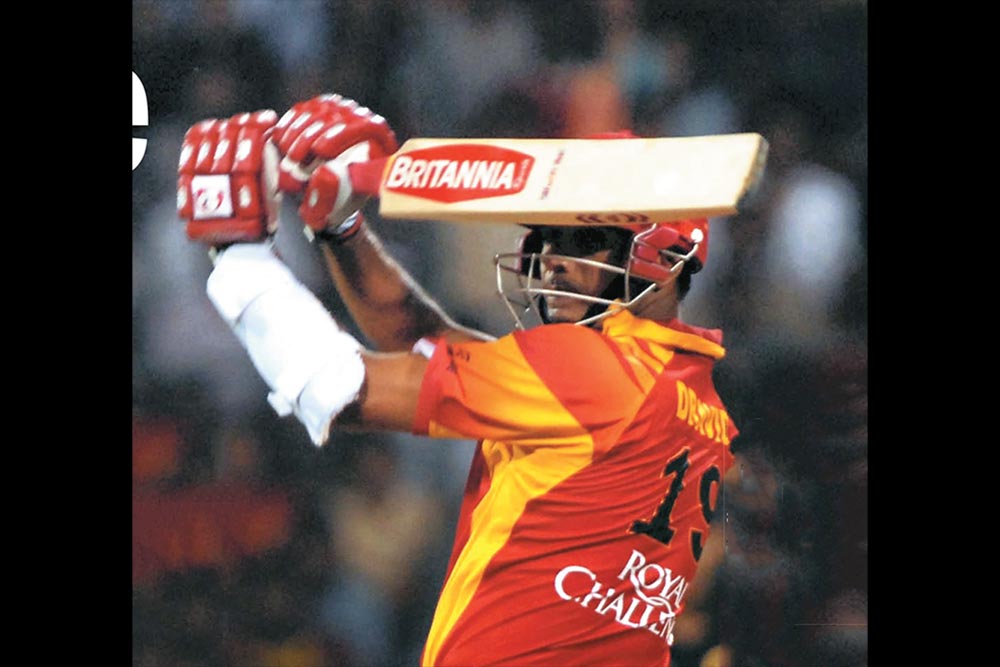Five seasons down and the Indian Premier League (IPL) is on a sticky wicket. In May, a rave with some prominent IPL stars was busted in Mumbai, causing serious embarrassment. If that could be ignored as an inconsequential off-field activity, the more recent development of Deccan Chargers inviting bids for a sellout has again raised serious questions on the financial soundness of many IPL team owners and their interest in the business of cricket.
When it was launched in 2008, the IPL was touted as the biggest India-based sporting event. The format was nothing new and the IPL was the result of a disagreement between the Board of Control for Cricket in India (BCCI) and the Indian Cricket League, the brainchild of Subhash Chandra, which never took off. That didn’t deter corporates and celebrities from loosening their purse-strings for a share of the excitement.
Reliance Industries paid $111.9 million for the Mumbai team, India Cements forked out $91 million for Chennai and Shah Rukh Khan spent $75.09 million for Kolkata. Sony Entertainment Television joined in and paid $1.026 billion to broadcast 10 seasons of IPL.
Things didn’t stay that rosy. The high cost of acquiring big names — $2.4 million for Gautam Gambhir (by KKR) and $2 million for Kevin Pietersen (by Delhi Daredevils) — and drop in sponsorship interest took a toll, as did the Lalit Modi-controversy and leaking of confidential information. Meanwhile, viewers were reaching for the remote, too: the extended duration meant a delay in the knockout stage, leading to a drop in interest.
Turning wicket
Deccan Chargers’ decision to exit the IPL comes on the back of the precarious financial position (debt of over Rs.2,000 crore) of its parent Deccan Chronicle Holdings (DCHL), this could well be symptomatic of other team owners as well. In the recent past, the Industrial Finance Corporation of India (IFCI) has said DCHL was insolvent, apart from the Hyderabad-based Karvy Group claiming that the promoters of DCHL were involved in forgery and misrepresentation of information.
If that’s not bad enough, DCHL’s shares have plunged to less than Rs.15 while the Bombay High Court has restrained the company from selling or leasing any of its Mumbai-properties. Six bank accounts have been frozen. It is expected that Deccan Chargers will be sold by the second week of September.
The decision to exit Deccan Chargers is an attempt to bring in funds into DCHL. Venugopal Dhoot, chairman, Videocon Group, admits his interest in buying the team, which boasts of stars like Kumar Sangakkara, JP Duminy and Darren Bravo. Though he does not comment on the price (reports suggest Rs.700 crore), Dhoot’s interest in cricket dates back to 2010, when he bid for Team Pune. But is this mere whim or serious interest? Understandably, Dhoot refrains from revealing more.
Balu Nayar, former MD of IMG India and a person closely involved in designing and monetising the IPL, says the tournament has had to contend with inadequate team management. “This could be either due to inherent competency issues or lack of bandwidth at the parent company level,” he explains. That includes teams like the Royal Challengers Bangalore (RCB), which is owned by the UB Group. The alcohol giant, which owns the loss-making Kingfisher Airlines, bought RCB for $111.6 million. The airline is mired in red, with losses of Rs.2,328 crore for FY12 and its auditors now say that the actual figure is closer to Rs.3,500 crore. Meanwhile, GMR-owned Delhi Daredevils, which was acquired for $84 million, is also in hot water. The GMR group has a debt of Rs.33,600 crore. There is nothing to suggest that more teams may not go the Deccan Chargers way.
Nayar says the need of the hour is to have a smooth process of transfer of ownership and “It is critical to get the best management teams from India Inc to run the franchises.” Deccan Chargers however, is not the first team to fall by the wayside. Kochi Tuskers Kerala, a consortium of multiple companies, that debuted in the 2011 IPL had its franchise terminated by the BCCI due its inability to furnish a new bank guarantee. It had Rendezvous Sports World as the largest shareholder with 26% ownership apart from sweat equity owned by Sunanda Pushkar.
How these team owners emerge unscathed remains to be seen since cricket fatigue is now setting in. “A key issue is declining viewership,” says Nayar. Quite clearly, that has not missed the attention of the title sponsor DLF, which has decided to end its sponsorship after five years. Though the realty company insists it was a strategic decision after spending Rs.250 crore, it does raise some questions on the state of the IPL. Clearly, this is a pitch that needs some serious overhauling before it can be declared fit for play.











